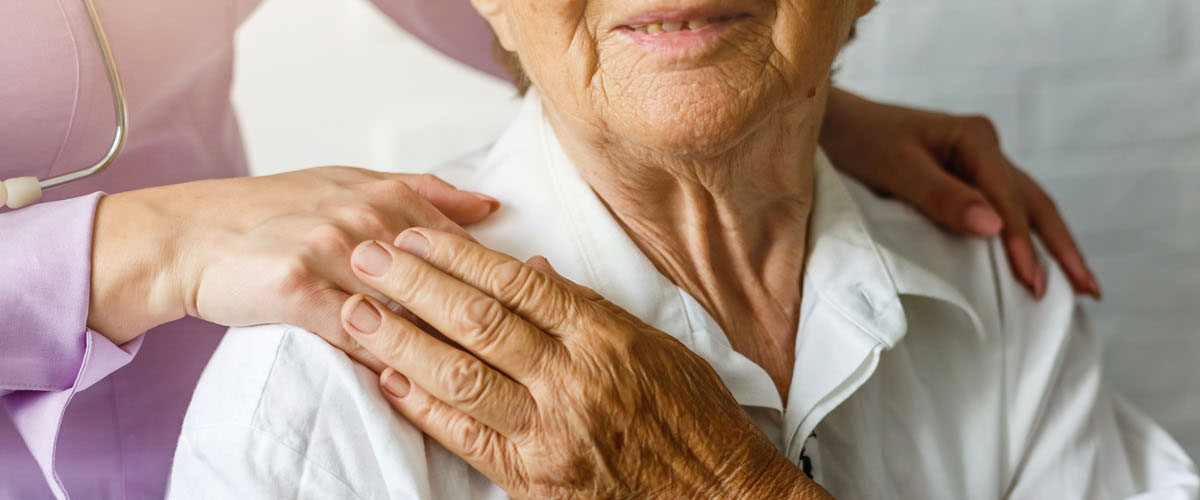Integrated Care Skills + Care of the Older Person

Care Skills & Care of the Older Person prepares the learner to care for clients in a safe and hygienic environment, applying different methods to provide appropriate support and care to their client, promoting maximum independence whilst maintaining their safety and their dignity, and caring effectively and to a high standard for older people in a range of settings using best practice and adhering to current legislative and regulatory requirements.
Course Code
5N2770 & 5N2706
Entry Requirements
- Over 18 years old
- Good spoken and written English
- QQI level 4 certificate
- Leaving certificate and/or relevant life and work experience
Qualification
2 QQI Level 5
Duration
4 days (Classroom) or 6 days (Blended Learning)
Assessment
Assignment / Skills Demonstration / Project
Participants must have:
- Proof of name and date of birth
- PPS Number
Cancellation fee:
- 100% price for cancellations made less than 7 days in advance, or in case of no-show
- No fee for cancellations made 7 or more days in advance
Care Skills:
- Identify relevant groups of people in need of health care
- Examine the physical, emotional, social, psychological and spiritual needs of a range of groups of people, taking into account individual variation
- Identify the hygiene needs of dependent clients
- Discuss the prevention of pressure sores
- Demonstrate knowledge of the correct procedures for the cleaning and replacement of a range of patient equipment
- Adapt levels of assistance to the needs of particular clients
- Demonstrate a range of interpersonal skills when dealing with clients to include empathy, respect, patience and effective communication skills
- Exercise initiative to improve client involvement in social events, outings and occupational therapy and physiotherapy
- Contribute to the maintenance of safe and hygienic environments for clients to include the safe disposal of soiled linen
- Assist clients with dressing, grooming, eating, drinking, toileting, continence promotion, mobility and, where appropriate, social needs
- Apply client safety and security procedures to include appropriate on-site client care procedures for washing, bathing, showering, positioning, moving and handling
- Give assistance that enhances the privacy, dignity, independence and positive self-image of clients in care
- Give assistance to clients in the use of a range of care equipment to include sensory equipment, aids to encourage independence and mechanical aids, including mobility aids, feeding aids, washing aids, elimination aids and hoists
- Report changes in the client’s condition to the relevant Supervisor
- Complete client documentation where appropriate
Care of the Older Person:
- Discuss a range of age-related issues to include healthy ageing, global and national demographic trends, the normal physiological and psychological processes of ageing, the social impact of ageing on older people and differing attitudes to ageing and older people
- Analyse the roles of the health care assistant in promoting positive attitudes to ageing and of statutory and voluntary agencies in promoting the well-being of older people
- Examine a range of concepts and practices to include preparation for retirement and the ethnic and cultural influences on the older person
- Explore a range of older people’s needs to include physical, social, emotional, psychological, recreational, financial, environmental and spiritual needs
- Summarise the role of the health care assistant in providing care for older people
- Discuss the issues related to an older person with mental illness or dementia and living with chronic illness
- Recognise the individual needs of the dying older person and their families
- Summarise the range of the care settings for older people and the members of the healthcare team available in each care setting
- Explore a range of specific services that are available for older people to include education, lifelong learning, retirement/the workplace and leisure
- Analyse current approaches towards developing quality in the provision of services for older people and their families to include standards and quality assurance
- Employ effective communication with the older person, their family and the multi-disciplinary team
- Adapt care and practices to meet the needs of older people with cognitive and sensory impairment and physical disabilities
- Exercise duties in a way that is respectful to the person’s body after death
- Promote a range of aspects of care for the older person to include empowerment, advocacy, independence, individualised care, dignity, respect, choice, self-esteem, and include family and carers as partners in care
- Assist in the identification of how health promotion issues can be promoted in care settings for older people and in the provision of therapeutic interventions that will enhance the social interactions and quality of life of the older person
Price
€500
Funding
Course funding options may be available, depending on eligibility. Contact your local Intreo office or Local Employment services.
Protection for Learners
Glin National College (GNC) offers students learner protection insurance, which ensures that learners of a validated programme of three months or longer leading to a QQI award have an opportunity to complete that programme, or are refunded the money most recently paid if that programme ends before they complete it. Each learner receives a Learner Protection Insurance Policy in their name and we will notify them in writing of any change in information within 14 days of becoming aware of that change.
Complaints Procedure
It is our policy to deal with any expression of dissatisfaction concerning our services or their provision in a fair manner. Complainants should raise their concerns as soon as possible, and where the conduct complained of is violent or criminal in nature, the Gardai will be contacted without delay.
While in no way diminishing the issue or the effects on individuals, an informal approach should be the first course of action as it can often easily resolve matters. If the situation or behaviour continues, the complainant can proceed to making a formal complaint. If a hearing by investigation is required, its results evaluate whether the complaint is valid or invalid, or is malicious, or whether there is insufficient evidence. If a complaint is not resolved to the satisfaction of the complainant, it may be referred again for internal review by Glin National College or in writing to the office of the Chairperson of the Board of Management.

